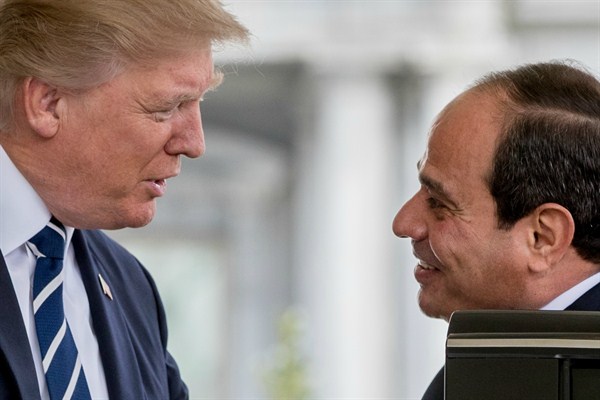Guest columnist Nikolas Gvosdev is filling in for Judah Grunstein this week.
President Donald Trump’s meeting at the White House on Monday with Egyptian President Abdel-Fattah el-Sisi gave the clearest indication yet of how the Trump administration plans to conduct American foreign policy. One of the most striking elements of el-Sisi’s visit was how the Trump team, in contrast to its predecessors in the Obama administration, decided to pursue a very focused, prioritized agenda.
President Barack Obama found himself caught amid the push and pull of contradictory impulses and interests when it came to the U.S. relationship with Egypt. El-Sisi was a particularly difficult challenge for Obama, given the then-general’s role in the 2013 coup that toppled the elected Islamist government of President Mohammed Morsi—and effectively reversed any of the political gains of the Arab Spring and the Tahrir Square demonstrations of 2011. Yet Egypt, and especially the Egyptian military and security establishment, remained an indispensable partner in maintaining U.S. strategic objectives in the Middle East: preserving the peace treaty between the most populous Arab nation and Israel, policing the border with the Hamas-controlled Gaza Strip, facilitating U.S. military overflight access to positions in the Persian Gulf, and cooperating in taking the fight to the self-proclaimed Islamic State and other extremist groups in Iraq, Syria and Libya.

